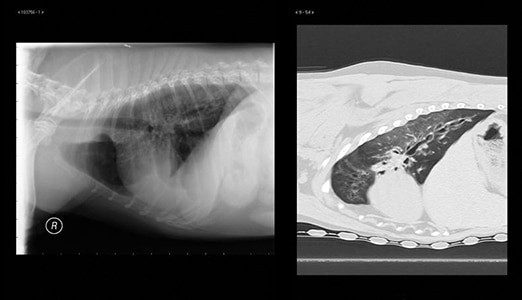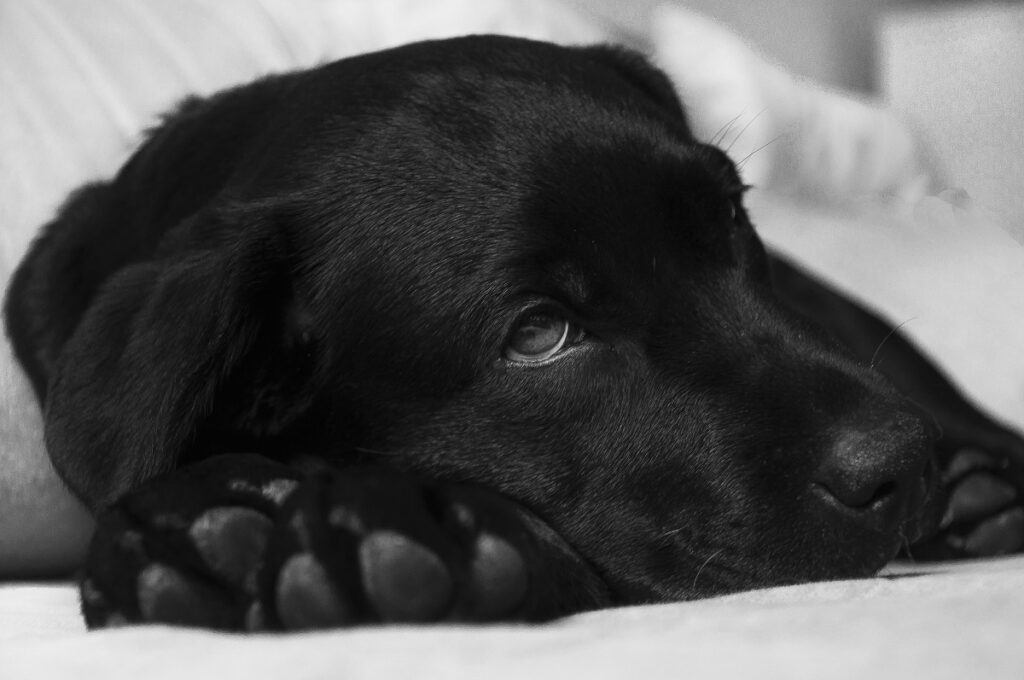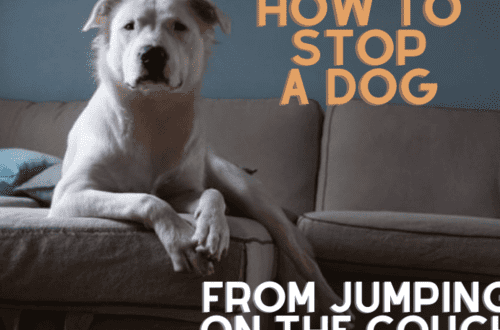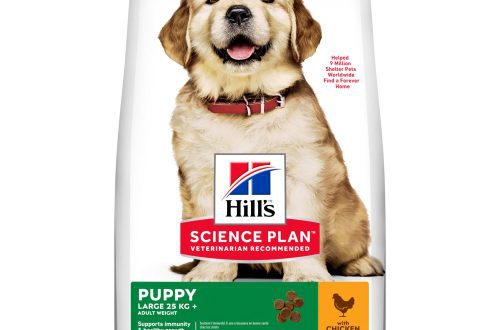
Bronchitis and pneumonia in dogs
Bronchitis and pneumonia in dogs are the most common complications of kennel cough. Less commonly, this happens due to pronounced hypothermia.

How to prevent bronchitis and pneumonia in dogs?
- Avoid hypothermia.
- Contact your veterinarian if treatment for kennel cough does not improve significantly after a few days.
- Contact your veterinarian if your dog is coughing, sneezing, and is lethargic and refuses to eat.
How to recognize hypothermia in a dog?
Hypothermia can be suspected if the dog is reluctant to walk, often looks at the owner, and is not active.
If the first signs are missed, the dog begins to tremble, lethargy develops.
Hypothermia may not develop immediately, but after an active period of walking.
Hypothermia is more susceptible to dwarf breeds and dogs without a thick undercoat. It can also develop when the undercoat gets wet.
Do not forget that with bronchitis or pneumonia in a dog, it is dangerous to self-medicate. If you have suspicions, you should contact your veterinarian as soon as possible and follow his recommendations.





